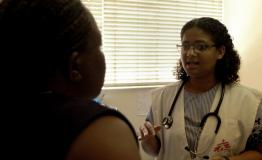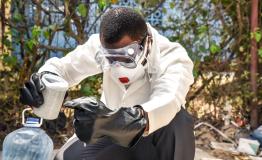

South Africa
In KwaZulu-Natal province, our project’s community-oriented approach is to increase integrated HIV testing and TB screening, as well as access and adherence to HIV treatment.
The Khayelitsha project near Cape Town continues to develop and implement treatment regimens for MDR-TB and innovative models of care for patients living with HIV and TB.
Our teams are currently responding to the coronavirus COVID-19 pandemic in South Africa.
Our activities in 2021 in South Africa
Data and information from the International Activity Report 2021.

170
17
€9.9 M
9.9M
1999
1999
MSF’s project in Eshowe, Mbongolwane and Ngwelezane in KwaZulu-Natal province responded to two major COVID-19 waves in 2021, by sending doctors and nurses to work in the COVID-19 wards of five hospitals. The project’s TB activities were closed for a week in July due to widespread social unrest in the province, in which more than 300 people died. In the immediate aftermath, we launched an emergency response, providing first aid and essential items such as blankets and hygiene kits, to support affected communities and health facilities.
To mitigate the impact of the COVID-19 lockdowns on the uptake of TB services, our HIV/TB project in Khayelitsha, in Western Cape province, provided home-based care to patients. We also gave TB preventive treatment to more than 150 individuals who were exposed to the disease in their homes.
In the cities of Tshwane and Johannesburg, where we run a migrant health project, we supported COVID-19 vaccination activities for undocumented people. For these marginalised groups, the lack of any identifying documentation poses a barrier to healthcare. To facilitate better access to medical services, we worked with our partners to develop ‘Green Book’ healthcare cards, which are recognised by local health authorities in lieu of identifying documentation.
In June, we handed over our sexual and gender-based violence (SGBV) project in Rustenburg on South Africa’s Platinum Belt to the provincial health department. Recognising the need for a better medical and psychological response to rape, MSF teams developed community-based health hubs, which provided care to thousands of SGBV victims. The project additionally supported safe abortion care in Bojanala district, with our staff performing thousands of abortion procedures between 2018 and 2021.
IN 2021
620
62

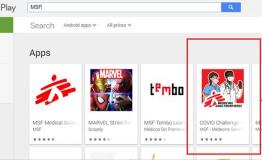
MSF challenges COVID-19 myths with new quiz challenge app
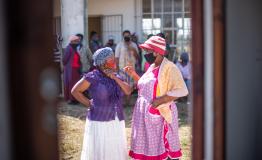
COVID-19 and rural South Africa
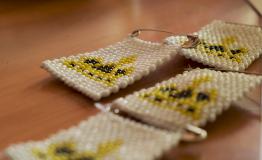
Armed with a mic, a lapel pin and a song, MSF battles COVID-19 stigma in South Africa
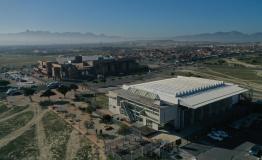
South Africa: Western Cape begins to breathe after COVID-19 peak
